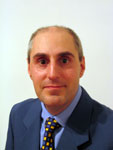One of the most damaging of all personal habits is that of compulsive lying. In my practice I have seenpeople who have, as they put it ‘destroyed their lives and relationships’ through compulsive lying.
What is the Difference Between a Pathological and a Compulsive Liar?
Pathological Liar
A pathological liar is someone who lies incessantly to get their way. They do it with little concern for others. Pathological lying is often a coping mechanism developed in early childhood and it is often associated with some other type of mental health disorder. Pathological liars have little regard or respect for the rights or feelings of others and are usually manipulative, cunning and self-centred.
Compulsive Liar
A compulsive liar is someone who lies out of habit. Lying is their normal and reflexive way of responding to questions. Compulsive liars bend the truth about everything, large and small. For a compulsive liar, telling the truth is very awkward and uncomfortable but lying feels right. Compulsive lying is usually thought to develop due to being placed in a childhood environment where lying was necessary. For the most part, compulsive liars are not overly manipulative and cunning - they just simply lie out of habit. It’s an automatic response which is hard to break and one that takes its toll on a relationship.
Most of us don't enjoy practicing deception, but lying is a difficult habit to break. If you're trying to get better at telling the truth, the following suggestions may be able to help:
You can’t stop lying if you haven’t admitted to yourself that you do it. Staying in denial only prolongs your pain and reinforces behaviours that make you unhappy with yourself. Therefore - admit and accept responsibility.
Check your feelings.
When you start to respond to someone with false information, you may feel physical symptoms. Your gaze may drop, your heart may pump harder, your face may redden, and your hands may clench. Become aware of these and other symptoms, and the next time you're tempted to lie, use those symptoms as a boundary that will not let you go further into a lie. Catch yourself and change your wording to reflect greater accuracy instead of deception.
List the reasons why your lying did not address your problem.
Ask yourself: "What didn't work here? Why not?" ( Example: Lying didn’t make me feel better; in fact it made me feel worse about myself later.) If you can learn as much as you can from one lie, then the next lie isn't quite so traumatic. Remember, it's more important to think of progress rather than perfection.
Practice apologising.
When you catch yourself in a lie, make a point of correcting your words to another person: "I'm sorry. That isn't quite right. What I meant to say is ...." Or try phrasing like this:
"No, I didn't actually get the work done, to be honest. But I expect to finish it up today."
Making yourself speak the truth, even if it means changing your story, will help you become more apologetic and truthful. You will start feeling more comfortable in saying difficult things when you find that nothing terrible happens when the truth is told. And others will come to trust you too, so that sharing negative views will become easier.
Remember: you are not your behaviour.
When you feel bad and find fault with yourself, you give power your lying habit. The best solution is to become aware of the lie, disassociate yourself from it - because you are not your behaviour - and notice how it made you feel.
Finally, reward yourself for success along the way. One way is to start by counting the number of lies you tell in a week. Let’s say at the moment you lie 20 times a week on average. After a couple of weeks of trying to reduce this number, you count up remaining lies for the next few weeks and find an average of 10, give yourself a treat as a reward. It all helps to keep you on track.
Telling the truth can often be painful, but it's far better to feel a pinch now than a punch later.
Friday, October 17, 2008
How To Stop Compulsive Lying
Posted by
David Laing. Clinical Hypnotic Consultant
at
9:42 AM
![]()
Labels: citytalk 105.9, compulsive behaviour, David Laing, lying
Subscribe to:
Post Comments (Atom)

5 comments:
thank you!!!!
Can I take hypnotist to help me stop lying.
Yes Jay Hypnotherapy can be extremely effective. If you would like me to help you over Skype or Facetime just let me know.
David Laing
www.merseyhypnosis.com
I need help I want to stop lying, I am distorying myself, my marriage my life, I don't know what to do or where to go
Hi Dawn. Give me a call or visit a reputable Hypnotherapist in your area - trust me you'll be glad you did!
Post a Comment